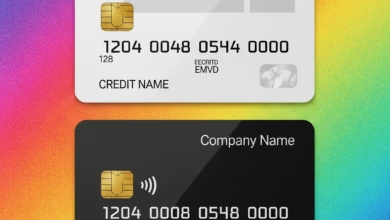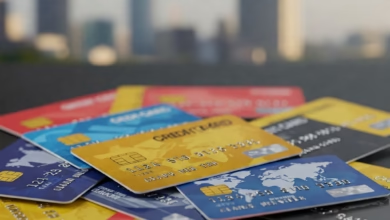How to use your credit card to make international purchases
Guide to using credit cards for international purchases

Traveling abroad or shopping online from international retailers has never been easier, and your credit card can be a powerful tool for these transactions. However, using your credit card outside your home country or for foreign currency purchases requires a bit of savvy to avoid unexpected fees and ensure smooth transactions. This guide will walk you through everything you need to know to become an international spending pro.
Understanding International Credit Card Fees: What to Watch Out For

Before you swipe or click “buy,” it’s crucial to be aware of the potential costs associated with international transactions. These fees can quickly add up if you’re not careful.
Foreign Transaction Fees: The Most Common Surcharge
This is arguably the most common fee you’ll encounter. A foreign transaction fee is a surcharge applied by your credit card issuer for purchases made in a foreign currency or processed by a foreign bank, even if the purchase is made online from your home country. These fees typically range from 1% to 3% of the transaction amount. For example, if you spend $1,000, you could pay an extra $10 to $30 in fees.
Dynamic Currency Conversion (DCC): Don’t Fall for This Trick
Dynamic Currency Conversion (DCC) is a practice where merchants (especially overseas) offer to convert your purchase price into your home currency at the point of sale. While it might seem convenient, it’s almost always a bad deal. The exchange rate used by the merchant is typically less favorable than the one your credit card network (Visa, Mastercard, etc.) would provide, and the merchant might add their own hidden fees.
Rule of Thumb: When given the option, always choose to be charged in the local currency of the country you are in (e.g., Euros in Europe, Yen in Japan) or the currency of the international website. Let your credit card network handle the conversion.
ATM Cash Advance Fees: Avoid Borrowing Abroad
Using your credit card to withdraw cash from an ATM overseas is treated as a cash advance. This is generally a very expensive transaction. You’ll typically be charged a cash advance fee (a percentage of the withdrawal, usually with a minimum amount), and interest starts accruing immediately, often at a higher rate than purchases, without a grace period. It’s usually better to use a debit card for cash withdrawals (after checking its international ATM fees) or to carry some local currency for small expenses.
Preparing Your Credit Card for International Use: Smart Steps Before You Go

A little preparation can save you a lot of hassle and potential headaches while traveling or shopping online.
Notify Your Bank/Card Issuer: Prevent Fraud Blocks
While many banks have sophisticated fraud detection systems, it’s still a good idea to notify your credit card issuer of your travel plans. Inform them about the dates you’ll be traveling and the countries you’ll be visiting. This helps prevent your legitimate transactions from being flagged as suspicious and your card being temporarily blocked. For online international purchases, this step isn’t usually necessary, but it’s good practice for physical travel.
Check Your Credit Limit: Ensure Sufficient Funds
Before embarking on a trip or making a large international online purchase, check your available credit limit. Ensure you have enough credit to cover your anticipated expenses, plus a buffer for emergencies. You don’t want your card to be declined in the middle of a transaction.
Have a Backup Card: Always Be Prepared
It’s always wise to have a backup payment method. Carry a second credit card from a different network (e.g., one Visa and one Mastercard) or a debit card linked to your checking account. This way, if one card is lost, stolen, or declined, you have an alternative.
Smart Strategies for International Credit Card Spending: Maximizing Benefits

Once you’re set up, here’s how to use your credit card effectively and beneficially for international transactions.
Opt for No Foreign Transaction Fee Cards: Your Best Bet for Savings
Seriously, if you travel frequently or make regular international online purchases, investing in a credit card with no foreign transaction fees is one of the best financial moves you can make. Many travel rewards cards and even some general cash-back cards offer this perk. The savings can be significant over time.
Pay in Local Currency: Dodge DCC Markups
As mentioned earlier, always choose to pay in the local currency when offered the option by a merchant. This ensures you get the better exchange rate provided by your credit card network, rather than a potentially inflated rate from the merchant.
Monitor Your Statements: Spot Fraud and Errors Quickly
Keep a close eye on your credit card statements, especially after returning from a trip or making international online purchases. Check for any unauthorized transactions or billing errors. Report any discrepancies to your credit card issuer immediately.
Understand Your Exchange Rate: Know What You’re Paying
While you don’t control the exact exchange rate, you can often find resources online (like Google’s currency converter or your card network’s exchange rate tool) to get a general idea of what rate you’ll be charged. This helps you budget and avoid surprises.
Staying Safe While Using Credit Cards Abroad: Security First

Security should always be a top priority, especially when using your card internationally.
Keep Your Card Secure: Protect Physical and Digital Information
Never let your card out of sight, and be cautious of skimming devices at ATMs or point-of-sale terminals. When shopping online, ensure the website is secure. Avoid using public Wi-Fi for financial transactions.
Be Wary of Suspicious Transactions: Act Fast
If you notice any suspicious activity on your card, contact your credit card issuer immediately. The sooner you report it, the better your chances of resolving the issue without financial loss.
Avoid Using Debit Cards for Purchases: Protect Your Bank Account
While debit cards are great for ATM withdrawals (after checking fees), using them for purchases carries more risk. If fraud occurs, the money is directly removed from your bank account, which can be more difficult and time-consuming to recover compared to a credit card where you’re dealing with borrowed funds.
By understanding the fees, preparing your cards, and adopting smart spending and security habits, your credit card can be a reliable and rewarding companion for all your international adventures and online shopping needs. Happy spending!





